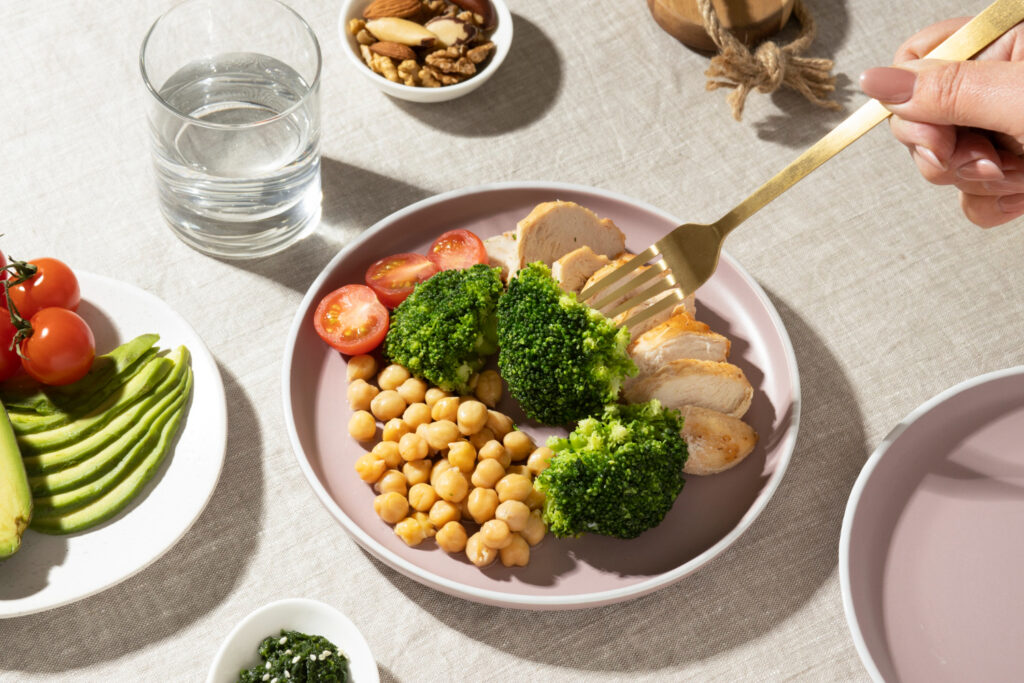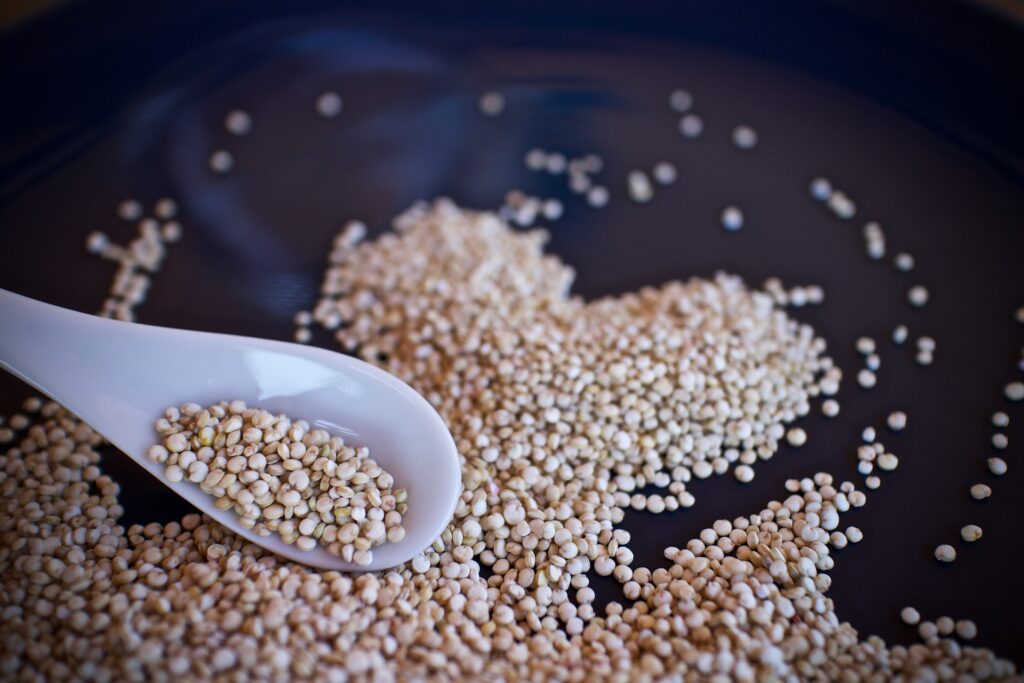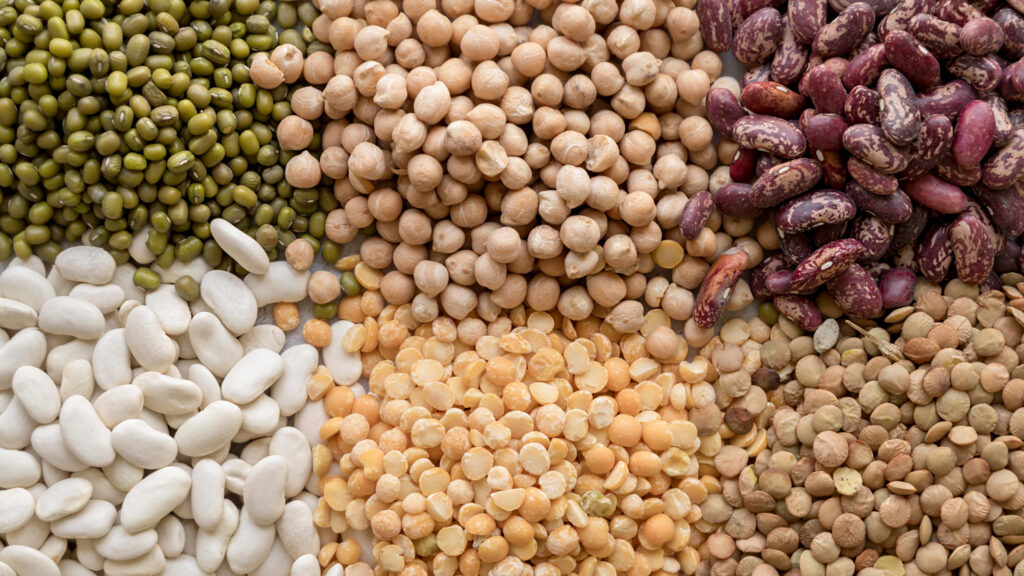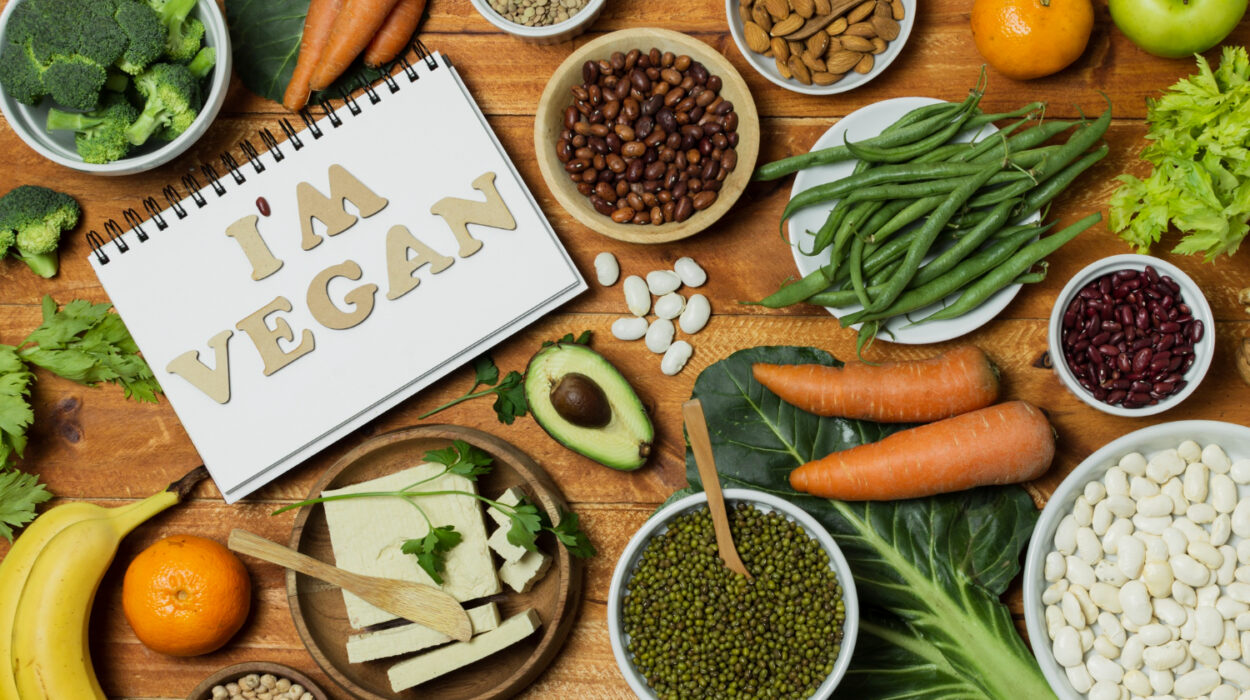If you’ve recently thought about switching to a plant-based diet, you’ve probably heard that it’s more challenging to get enough protein as a vegan.
Protein is an important macronutrient that aids in muscle growth, tissue repair, and even immune system enhancement. However, if you don’t consume animal-based foods like meat, poultry, dairy, or eggs, reaching your daily protein need can become difficult.
There are strategies to make sure you eat enough protein if you’re a vegan.
The secret is to be aware of a few strategies and recommendations, such knowing the proper dietary pairings to avoid protein deficiencies. To make sure you’re getting enough protein each day, use the advice below.
What source of vegan protein?

According to the research, it is advised to ingest 0.8 grams of protein per kilogram of body weight each day to prevent any deficits.
If you weigh 190 pounds (86 kilograms), you should aim to consume around 68.8 grams of protein daily. It’s important to note that this recommendation is specifically for average sedentary adults. However, older adults and those who are physically active may require a slightly higher protein intake each day.
If you’re into a plant-based lifestyle, you can easily meet the recommended protein intake by incorporating some of these awesome vegan protein sources into your diet.
1. Beans
2. Lentils
3. Nuts
4. Seeds
5. Quinoa
6. Oats
7. Tofu
8. Tempeh
9. Nutritional yeast
6. Tips for Vegans on Protein Intake
Are you trying to find strategies to increase the amount of plant-based protein you consume or avoid getting too little protein? Try these tips.
1. Replace rice with quinoa
Quinoa is a better choice than brown rice if you want to increase your protein consumption. While both grains contain carbohydrates and fiber, when cooked, quinoa contains a powerful 8 grams of protein per cup compared to brown rice’s meager 5 grams. So quinoa is the way to go if you want to improve your protein intake.

Quinoa is an extraordinary choice of food because the nine essential amino acids that our body needs to perform vital functions like power generation, tissue maintenance and immunity are contained in it. These amino acids are necessary for our physical and mental health, yet they cannot be produced alone by the body. The fact that it’s a complete protein, as is typical of animal based sources, makes quinoa unique.
2. Use vegan protein powder
Incorporating vegan protein powder into your diet is a convenient and efficient way to boost your protein intake, particularly when you’re in a hurry to kickstart your morning.
Plant-based protein powders come in a wide range of options now and can be used in a variety of ways. Simply combine your protein powder with water or nondairy milk to give yourself an energy boost in the morning. You may mix the powder into oatmeal, add it to baked goods, make a lovely smoothie out of it, or turn it into a protein shake if you want a heartier vegan-friendly meal.
3. Give your body the necessary amino acids
Proteins are composed of 20 amino acids, with the body being able to produce 11 of them independently. The remaining nine amino acids can be obtained from various food sources. As we mentioned earlier, when a food contains all nine essential amino acids, it is referred to as a complete protein.
Animal-based products are the source of the majority of complete proteins. There aren’t many vegan food options that naturally include all nine of the essential amino acids that our systems are unable to make. On the other hand, some plant-based proteins are rich in particular important amino acids. Consider lentils, beans, tofu, seeds, and nuts. You can significantly improve your chances of fulfilling your daily protein needs by include more of these protein-rich foods in your diet.
But beans don’t have all the necessary amino acids by themselves. It is worthwhile to take into account combining beans and grains to produce a complete protein. When these two foods are eaten together, they complete one another by supplying the nutrients that are lacking.
4. Begin with protein
Starting your day with a protein-rich lunch alleviates the burden of attaining your daily protein goal. A breakfast high in protein will also make you feel satisfied, energized, and prepared to take on the day.
An good example of a vegan breakfast high in protein is oatmeal. In contrast to other grains, oats are high in protein and have a balanced ratio of all the essential amino acids. You can add tasty items like fruits, nut butter, or seeds to improve the flavor. Try a tofu or tempeh scramble or indulge in fruit smoothies made with nondairy milk and vegan protein powder if you’re seeking for additional protein-rich breakfast alternatives.
5. Add beans to everything
Regarding sources of plant-based protein, beans and other legumes are highly fascinating. They are genuinely interesting because of their immense variety and limitless culinary possibilities. Additionally, their protein content is powerful. Just look at cooked chickpeas, which offer an astounding 14.5 grams of protein per cup. And as if that weren’t astounding enough, one cup of cooked lentils has a whopping 17.9 grams of protein.

Looking for ideas to include more beans and legumes in your vegan diet? Well, if you’re a fan of soup, why not amp up the protein by adding kidney beans or lentils? Alternatively, you can whip up some delicious vegan-friendly bean tacos using black beans or pinto beans. And if you’re into salads, why not give them a boost by tossing in some peas or chickpeas?
6. Sprinkle nutritional yeast on your meals
When it comes to plant-based foods, nutritional yeast is excellent because it not only gives your food a savory flavor but also a lot of protein. Two teaspoons of nutritional yeast have an astounding 3 grams of protein in them! Even more impressive is the fact that it is a complete protein, which means it contains all nine of the key amino acids that our systems require but can only get from food.
Although nutritive incentive is deduced from shops, it boasts a pleasurable nutty and rubbish– suchlike flavor, making it a perfect choice for vegans pining a savory experience. The versatility of nutritive incentive is remarkable, as you can sprinkle it on a wide range of dishes, from popcorn to mists to pasta. Not only does it enhance the taste of your food, but it also provides a protein boost.
Due to its abundance in animal-based goods, nutritional yeast is an excellent source of vitamin B12, which is sometimes absent in vegans’ diets.
You Can Also Read: Onions for Diabetes: Managing Blood Sugar Levels with Nature’s Superfood
The Bottom Line
Getting enough protein each day is a common concern for many people who are considering or just starting a vegan lifestyle. But hey, no worries! There are actually plenty of ways to meet your daily protein needs on a vegan diet. You can try using plant-based protein powder or opt for foods that are packed with amino acids.
